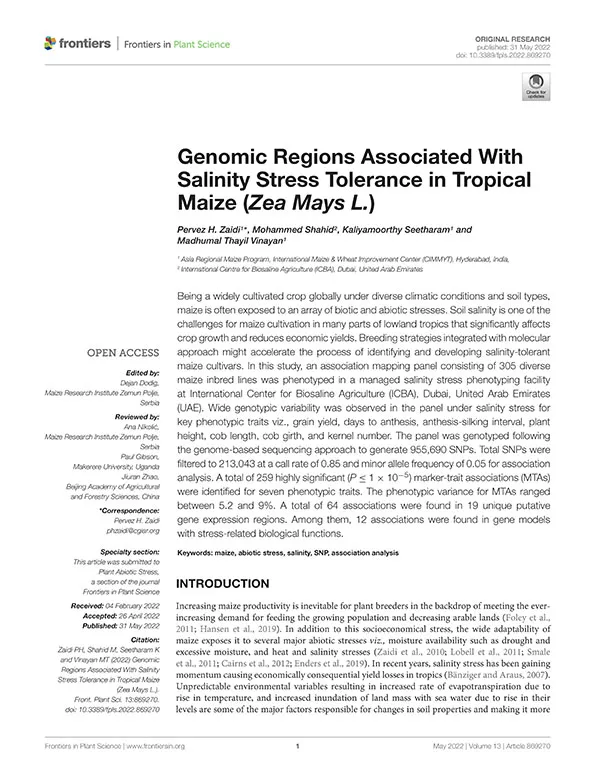Genomic Regions Associated With Salinity Stress Tolerance in Tropical Maize (Zea Mays L.)
Being a widely cultivated crop globally under diverse climatic conditions and soil types, maize is often exposed to an array of biotic and abiotic stresses. Soil salinity is one of the challenges for maize cultivation in many parts of lowland tropics that significantly affects crop growth and reduces economic yields. Breeding strategies integrated with molecular approach might accelerate the process of identifying and developing salinity-tolerant maize cultivars. In this study, an association mapping panel consisting of 305 diverse maize inbred lines was phenotyped in a managed salinity stress phenotyping facility at International Center for Biosaline Agriculture (ICBA), Dubai, United Arab Emirates (UAE). Wide genotypic variability was observed in the panel under salinity stress for key phenotypic traits viz., grain yield, days to anthesis, anthesis-silking interval, plant height, cob length, cob girth, and kernel number. The panel was genotyped following the genome-based sequencing approach to generate 955,690 SNPs. Total SNPs were filtered to 213,043 at a call rate of 0.85 and minor allele frequency of 0.05 for association analysis. A total of 259 highly significant (P ≤ 1 × 10–5) marker-trait associations (MTAs) were identified for seven phenotypic traits. The phenotypic variance for MTAs ranged between 5.2 and 9%. A total of 64 associations were found in 19 unique putative gene expression regions. Among them, 12 associations were found in gene models with stress-related biological functions.
Year
2022
Publication Source
Frontiers in Plant Science
Publication type
Scientific Paper











